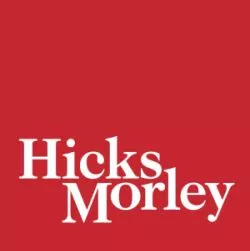In United Steelworkers Local 14193 v Cameco Fuel Manufacturing Inc. (Cameco Fuel), Arbitrator Nyman considered the permissibility of offsetting banked Canada Labour Code sick days against an existing entitlement to employer-provided sick leave benefits under a short-term disability (STD) plan.
Background
On December 1, 2022, amendments to the Canada Labour Code (CLC) came into force entitling all federally regulated employees subject to Part III of the CLC to up to 10 days of paid medical leave per calendar year (CLC Sick Days).
Prior to this amendment, the CLC provided up to three paid personal days which could be used for illness or injury, among other reasons. Now, the CLC provides that all employees who complete 30 days of continuous service will earn three CLC Sick Days, after which they will accrue one additional day per month, to a maximum entitlement of 10 paid days per calendar year.
Employment and Social Development Canada published Stacking – Medical Leave with Pay (the Guideline) in 2022 and advised that paid sick leave taken under a collective agreement or employment contract will count towards an employee's entitlement under the CLC only where certain conditions are met (for further details see our Federal Post Federal Government Publishes Regulations Regarding Paid Medical Leave and Guidance on "Stacking" with Existing Leaves).
The Decision in Cameco Fuel
In Cameco Fuel, Arbitrator Nyman dismissed a grievance involving an employer's decision to offset banked CLC Sick Days against an existing entitlement to employer-provided sick leave benefits under an STD plan.
Prior to the CLC amendments, the employer, Cameco Fuel Manufacturing Inc. (Cameco), did not reduce the entitlement to personal days under the CLC when employees received STD benefits. After reading the Guideline about the application of the new CLC Sick Days provision, Cameco sought to count approved STD days that are paid at 100% of weekly earnings as CLC Sick Days.
The union grieved this practice, claiming the STD plan and CLC Sick Days are separate entitlements and that Cameco's deduction deprived employees of their statutory rights. In response, Cameco argued that by integrating the two schemes, it was providing a benefit superior to that set out in the CLC.
Arbitrator Nyman first recognized that section 168 of the CLC protects the rights or benefits of employees arising under "any law, custom, contract or arrangement that are more favourable." Arbitrator Nyman then went on to determine that the proper analysis is to look at the statutory benefits, on one hand, as compared to Cameco's custom or arrangement of allowing employees to access CLC Sick Days (provided they qualify and have banked CLC Sick Days) along with the contractual right to benefits under the STD plan.
The legal test Arbitrator Nyman applied was succinctly summarized in 1643749 Ontario Inc. and Joseph Arsenault et al:
[...] First, when comparing the statutory benefit to the allegedly more favourable benefit, one must consider the purpose of the statutory benefit. Second, a determination must be made whether the allegedly more favourable benefit serves the same purpose as the statutory provision. If it does, and it is found indeed to be more favourable than the statutory benefit, then it prevails vis-à-vis the statutory counterpart. Otherwise, the employee is entitled to claim the minimum standard under the [CLC].
In considering the purposes of the competing benefits, Arbitrator Nyman found that CLC Sick Days and the STD plan have the same substantive purpose: "Both benefits are forms of wage indemnification to address personal illness and injury" (para 31).
Further, Arbitrator Nyman found that when these two benefits are compared, Cameco's practice of allowing employees to access both CLC Sick Days and the benefits provided under the STD plan provide a greater entitlement than just the entitlement under the CLC:
Ultimately, when considered as a whole, Cameco's practice of allowing employees to utilize CLC Sick days for which they otherwise qualify and have available along with the STD Plan provides a more favourable benefit than CLC Sick Days alone, even though Cameco deducts an entitlement to a CLC Sick Day for each day an employee receives 100% wage indemnity under the STD Plan (para 34).
Arbitrator Nyman determined that Cameco's practice of offsetting CLC Sick Days was permissible, and the grievance was dismissed. Arbitrator Nyman clarified that his determination was based upon the specific facts of Cameco's current practice.
Takeaways
Implementing paid medical leave under the CLC, in conjunction with existing leaves, is challenging for federally regulated employers.
The arbitrator's analysis is instructive insofar as it addresses the interplay between the new CLC provisions concerning CLC Sick Days and existing entitlements. This decision confirms that employers may be able to offset paid leave under a collective agreement or other arrangement against the new CLC entitlement.
Reminder
Amendments to the CLC which come into effect on February 1, 2024 will require federally regulated employers to provide individual employees with a graduated notice of termination based on their consecutive years of continuous employment. The amendments will also require employers to provide individual employees with a statement of benefits upon termination.
Should you have any questions about implementing paid medical leave under the CLC or about the upcoming amendments, please contact your regular Hicks Morley lawyer.
Originally published January 18, 2024.
The content of this article is intended to provide a general guide to the subject matter. Specialist advice should be sought about your specific circumstances.


